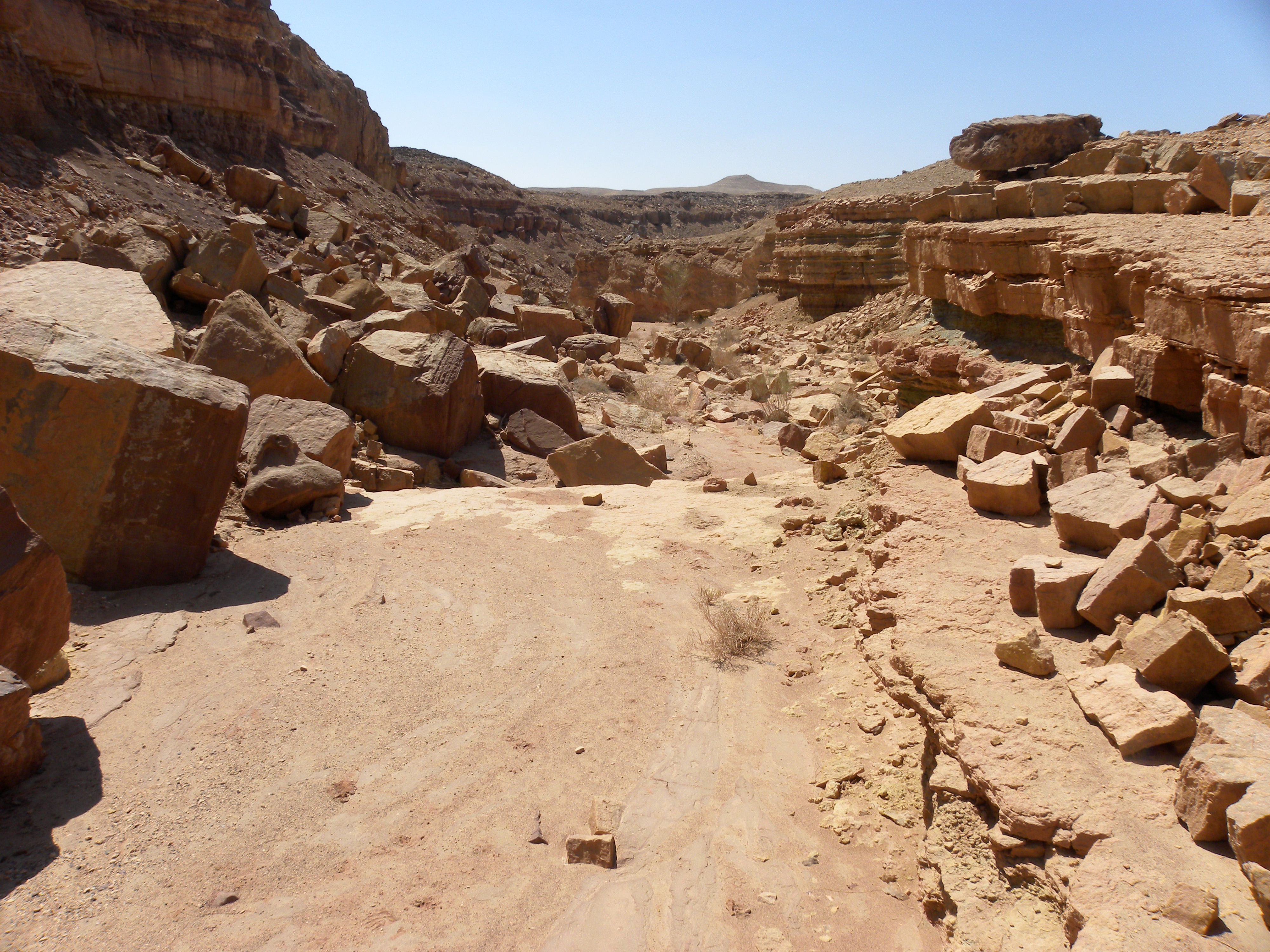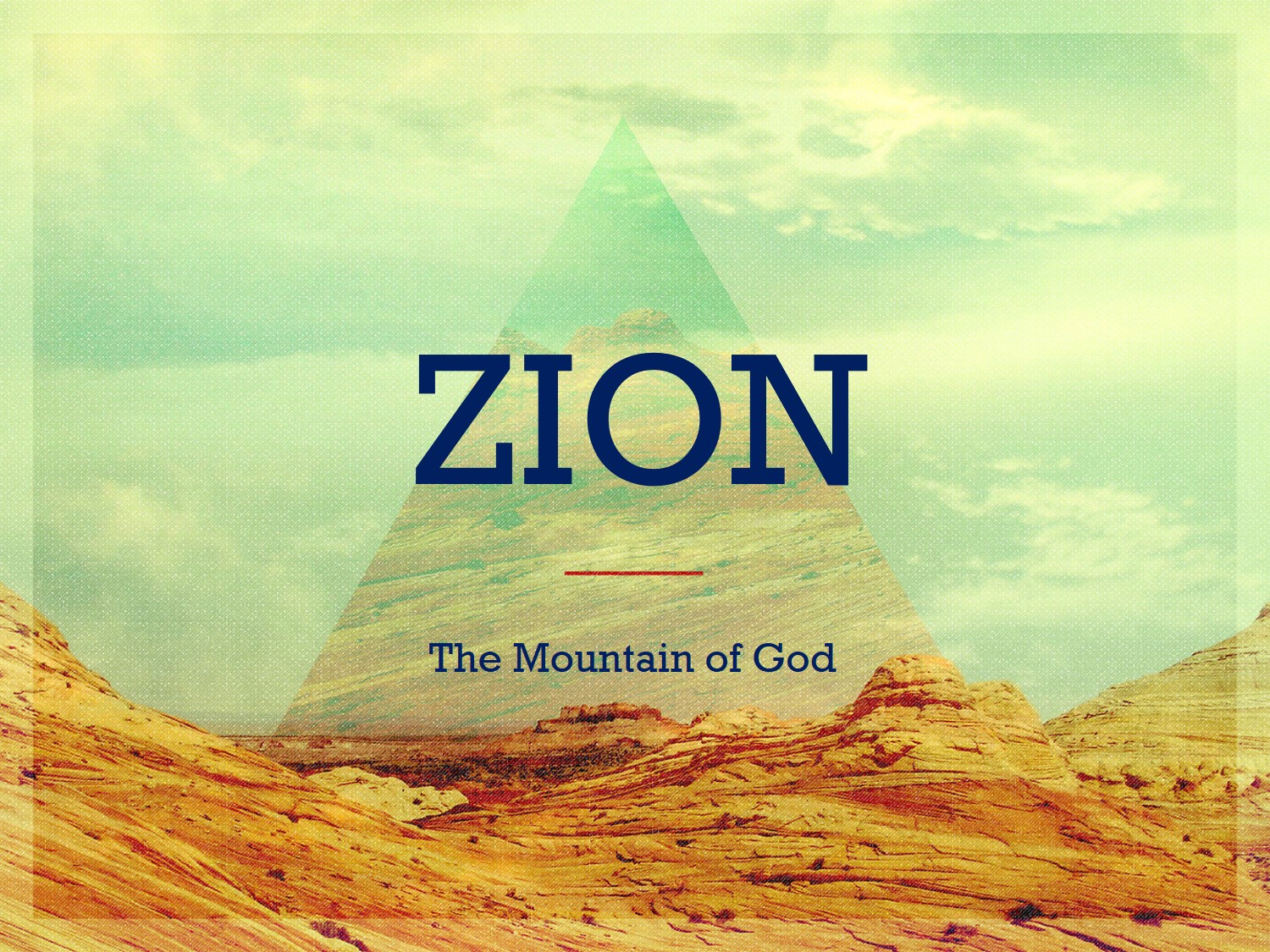Blog
Psalm 63
Wednesday, October 09, 2019
My God, I seek You earnestly
And crave Your righteousness;
I thirst for You as in a land
Both dry and waterless.
Within Your courts, I see Your might
And know Your steadfast love,
So I will bless You all my life
And stretch my hands above.
Your name is sweetness to my soul;
I praise You with delight;
In bed, I still remember You
And meditate all night.
I celebrate Your help for me
Beneath Your shadowed wings;
Your strong right hand upholds my life;
To You my spirit clings.
All those who seek to take my life
To darkness will descend;
The sword will claim them by its power
And jackals be their end.
But I will still exult in God;
His people shall rejoice;
But He will stop the scoffer’s mouth
And still the liar’s voice.
Zion, the Mountain of God
Tuesday, October 08, 2019
I have to say, there are few better ways to vary up the content of your preaching than to solicit sermon suggestions from the congregation! Frankly, the suggestions I get show me how narrow my perspective is. Even if I never got another sermon request, I wouldn’t have any trouble coming up with two sermons a week indefinitely, but almost invariably, the requests that I do get are on subjects that I never would have thought to preach on.
This evening’s sermon is a case in point. Its inspiration came from Landon, who noted that in our hymns, we sing a great deal about Zion, but we don’t necessarily understand as much about Zion as we think we do when we’re singing. Once I started studying for the sermon, I realized, somewhat to my dismay, that Landon was right. I can’t speak for anybody else, but I sure didn’t know as much about Zion as I thought I did! In fact, there are some pretty important things that I learned that may well not be common knowledge. With this in mind, then, let’s consider Zion, the mountain of God.
Let’s begin by considering ITS OLD-TESTAMENT SIGNIFICANCE. Mt. Zion appears in the Bible for the first time in 2 Samuel 5:6-7. I have to say, this was an eye-opener for me. I had always associated Mt. Zion with the Temple Mount, but it isn’t. Instead, Mt. Zion is the eminence directly to the south of the Temple Mount. It’s the location of the Jebusite citadel that David conquered and made his capital. Mt. Zion held the oldest, earliest parts of the city of Jerusalem, which is why “Jerusalem” and “Zion” are used interchangeably in the Bible.
Here’s why this matters. It means that whenever we read or hear “Zion”, we should not think “temple”. We should not think “priest”. Instead, we should think “fortress”, and we should think “king”. It’s a whole different set of imagery than the temple-priest-sacrifice imagery of the Temple Mount.
Instead of all those things, Zion was significant in three main ways. First, it was the dwelling place of God. Look at Psalm 76:1-2. I find this surprising for a couple of reasons. First, once I figured out the actual location of Zion, I expected the Bible to make a big deal about the kings of Israel and Judah living there. That doesn’t happen. It’s mentioned a time or two, but the main inhabitant of Zion is the great King, God.
This is disorienting for another reason. Typically, when we think of God’s dwelling place in the Old Testament, we think specifically of the temple. However, the Scriptures point out over and over again that Zion is His dwelling. To put things another way, even though there was a sense in which God lived in the temple, apart from His people, He lived in their midst, in Zion, too. Even today, it should matter deeply to us that God dwells in our midst!
Second, Zion also features prominently as a place of safety. Here, look at Psalm 125:1-2. This makes perfect sense. In a purely physical sense, Zion was a mountain in the middle of a bunch of other mountains. It was hard for invading armies to get to. Additionally, it was heavily fortified. There’s even a psalm, Psalm 60, that’s about the Israelites asking for God’s help after the walls of Jerusalem were destroyed in an earthquake. When you are surrounded by homicidal neighbors, walls are important!
However, what made Zion truly secure was that it was God’s dwelling place. Notice that in Psalm 125, the true source of protection isn’t the mountains surrounding Jerusalem, but the Lord surrounding His people. This is still important to us today. The hymn-savvy among you will already have noticed that the words to our hymn “Surround Us, Lord”, come from v. 2. Even now, as the inhabitants of a spiritual Zion, we look to God for protection.
Finally, in an Old-Testament sense, Zion was the source of salvation. Consider Psalm 14:7. Once again, this is something that I can only connect back to Zion as God’s dwelling place. Because only God could save, salvation had to come out of Zion.
This theme continues even in the books of the prophets. Isaiah, for instance, talks about Zion a great deal, though his focus was on post-exilic Judah returning to Zion. When the exiles re-entered the city, that was when they could rejoice in God’s salvation.
Today, of course, this subject is even more meaningful to us. We don’t regard the dwelling place of God as the source of our salvation from earthly enemies or earthly captivity. Instead, we rejoice because our spiritual deliverance has come out of Zion!
Shifting forward in time, we see that Zion is also a concept with MESSIANIC SIGNIFICANCE. To capture this, I think we need to read the entirety of Matthew’s account of the Triumphal Entry, Matthew 21:1-11. Notice how prominently the prophecy of Zechariah 9 features in this text. Jesus rides into Jerusalem on a donkey in order to fulfill a prediction made hundreds of years before.
However, there’s more to the idea of the king entering Zion than merely that. As we have seen, yes, Zion was the dwelling place of the Davidic kings, but it was really the dwelling place of God. As a result, all the people who were hailing the return of the king to Zion weren’t just hailing the son of David, though they thought they were. They were hailing the Son of God. Only when the great King is in Zion can His people be restored.
Today, restoration is still THE MEANING OF ZION FOR US. Let’s wrap up our reading for the evening with Hebrews 12:18-24. There are plenty of people out there who insist that the physical Mt. Zion and the earthly Jerusalem still have spiritual significance. As this text makes clear, they could not be more wrong. Today, it is the spiritual Zion, the heavenly Jerusalem, to which we have come.
However, even though the location may have changed, its symbolic significance remains the same. Zion, partially in the church and fully in heaven, is still the place where God dwells with the assembly of His people. It is where we come into contact with the blood that purifies us instead of condemning us. Most of all, Zion is the place where we can be perfected through our covenant with Jesus. Zion has been meaningful to the people of God for 3000 years, and even after the earth is destroyed, its significance will continue.
Summaries, Psalms 105-106
Monday, October 07, 2019_1.jpg)
Possibly, Psalms 105 and 106 were originally a unit, like Psalms 42 and 43 were. Even if they weren’t, they are clearly intended to be understood together.
Psalm 105 recounts God’s care for His people. It begins by calling the Israelites to remember the way He protected the patriarchs. Because God is faithful, He remembers the covenants He makes, including the promise (originally made to Abraham, confirmed to Isaac and Jacob) to give them the land of Canaan as an inheritance.
His faithfulness first manifested itself in the way He safeguarded them. Even though they were few and weak, He still kept them safe from the powerful and would not allow anyone to oppress them. Even when He sent famine on the earth, He provided for His people by sending Joseph to Egypt. Joseph suffered as a slave, but then he was exalted and given great power. As a result of this, Israel found provision in Egypt.
When God prospered the Israelites so much that the Egyptians began to hate them, He sent Moses and Aaron to deliver them. Through them, He performed the miracles of the ten plagues. As a result of this, Israel left Egypt with great riches, and the Egyptians were glad to see them go. On the journey, God provided guidance for them with the cloud and the fire, and He provided for their needs with manna, quail, and water in the desert—all because of His promise to Abraham. He brought them to Canaan and gave them the land so that they could honor Him, and He is indeed worthy of praise.
If Psalm 105 is about God’s faithfulness, Psalm 106 is about Israel’s faithlessness. The psalm opens by exalting God and appealing to God to bless the psalmist so that he can rejoice.
From there, he acknowledge that both he and his fathers have sinned. In Egypt, even though they forgot Him, He saved them by leading them through the Red Sea and destroying the Egyptian army. However, despite this, they forgot His goodness and tested Him in various ways.
They complained about the manna and were stricken with disease as a result. They rebelled against Moses and Aaron, and the ringleaders were swallowed up by the earth and consumed with fire. At Sinai, they made and worshiped a golden calf, provoking God to such anger that He would have destroyed them but for Moses’ intervention. They questioned whether He would give them the land, causing Him to condemn them to die in the wilderness. They committed idolatry and immorality at Baal-Peor, leading to a plague until Phinehas righteously intervened. Finally, they rebelled at Meribah, angering Moses and causing even him to sin.
Even once they received the land, their sin continued: not destroying the nations, intermarrying with them, and committing idolatry. Most egregiously, they sacrificed their children to Molech, polluting the land with innocent blood.
God attempted to chasten them through foreign oppressors, but their repentance was never more than temporary. Finally, God sent them into exile, but even there He had compassion on them and protected them from their captors. The psalm concludes with a prayer for God to restore them to the land and a call for His people to bless Him.
Amber Guyger and Forgiveness
Friday, October 04, 2019
My father liked to observe (not original to him, I’m sure) that the parable of the prodigal son had been preached on from every perspective but that of the fatted calf. You’ve got the prodigal’s perspective, the father’s perspective, and the older son’s perspective, all of which offer different spiritual insights.
I think the same is true of the story of Brandt Jean forgiving and embracing Amber Guyger, the murderer of his brother. Because Jean is a Christian (and how!), many brethren have been drawn to write about the grace he showed. Indeed, I’ve agreed with and endorsed everything I’ve read from them.
However, I think there’s another perspective here, and that’s the perspective of the murderer herself. If you are a worldly person, how do you feel about forgiveness on such an epic scale?
I think the question is easy to answer with respect to forgiveness’s opposite. Let’s say Jean had gone up to Guyger and coldly informed her that he did want to see her rot in jail, and indeed, to see her rot in hell.
I think most people, Amber included, would see that as a natural (Ephesians 2:3 overtones intended) reaction from an 18-year-old whose brother had been brutally gunned down. Indeed, Titus 3:4 observes that being hateful and hating one another is the expected state of the sinner (side note: is it any wonder that as Christian values decline in our nation, hatred seems to be on an inexorable increase?).
We understand that. We get that, and I think that Guyger would have understood and gotten hatred and condemnation. Perhaps, in light of her expressions of remorse, it further would have crushed her and added to her guilt. Perhaps it would have made her defensive and hardened her heart against Jean and his family. These things too are reactions that are natural to us. We are prepared to see them and even to experience them.
On the other hand, if you are Amber Guyger, what in the world do you do with forgiveness? Hatred makes sense. Love does not. It is not what you are prepared to receive. Something that is not natural has occurred. The ground under your feet that you thought was stable has suddenly shifted.
That sense of mingled unease, awe, and fear is the sign that God has touched the world again. It appears literally all the way through the gospels, following hard on the heels of many (most?) of the miracles that Jesus works. He leaves people reeling, struggling to comprehend that the light of an ordinary day should have shone upon such a thing. This is most evident in the terrifying stillness of the empty tomb. His closest disciples flee the scene of His greatest miracle because a dead Jesus is easier to accept than a living one.
I believe that God touched the world again when Brandt Jean said, “I forgive you,” Every time a Christian does something that awes us, we see and feel the evidence of His handiwork. Does this constitute proof in any rigorous, scientific sense? No, but I think even the atheists in that courtroom that day know in their heart of hearts what they experienced.
Do as you will with your life, Amber Guyger, but know this. The kingdom of God has come near to you.
Clapping After Baptisms
Thursday, October 03, 2019
Several weeks ago, my brother and friend Dan DeGarmo wondered out loud online why any Christian would have a problem with the congregation clapping after a baptism that occurred during a regular time of assembly. In response, several brethren took the time to explain to him why they, personally, had a problem with clapping after baptisms. The conversation went (downhill?) from there.
For my part, clapping after baptisms strikes me as a classic de minimis issue. No, clapping after baptisms does not appear in the New Testament, but neither do a number of other minor practices. It is true that we have houses to eat and drink in, but just about all of our church buildings have water fountains in them too. Such things don’t have significant impact on our obedience to Christ whether we do them or not.
So too with clapping after baptisms. Most churches only infrequently have baptisms when the church is assembled (I wish it happened much more often!), and the clapping afterward simply isn’t a meaningful event in the spiritual life of the church. It’s an expression of joy on the part of the congregation that isn’t quite so steeped in Restoration-Movement tradition.
I myself don’t clap (being very steeped in Restoration-Movement tradition), but when I’m the one performing the baptism, I tend to hug the baptizee (Wet post-baptism hugs are the best!). There are hugs in the New Testament (though not after a baptism, so far as I recall), but that’s not why I do it. I don’t think deeply about it. I do it because I’m happy.
I don’t see a reason for the analysis to go farther than that. People who want to take it farther than that probably also have thought deeply about the spiritual implications of water fountains.
Having said that, I think that by far the bigger issue is how we Romans 14 our way through post-baptism applause. Do brethren who aren’t OK with clapping get judgy in the direction of brethren who are? Conversely, do brethren who clap shake their heads with contempt at those who oppose clapping? We do have relevant Scripture on this point, and both of those attitudes are problematic.
Rather, both clappers and non-clappers alike should learn to bear with and love those who disagree with them. Would you like to clap, but you know it bugs that old dude three rows up? Maybe it would be better to abstain and content yourself with ultra-Scriptural hugs after services are over. Are you anti-clapping, but you worship with a bunch of folks who applaud? Maybe it would be better to focus on their joy (and the joy of the angels in heaven) rather than on your unhappiness with the form that joy takes.
Surely, in an era so filled with divisiveness and strife, we don’t need to generate division and strife out of an issue like this! In Christ Jesus neither clapping nor not clapping counts for anything, but only faith working through love.


